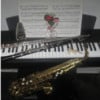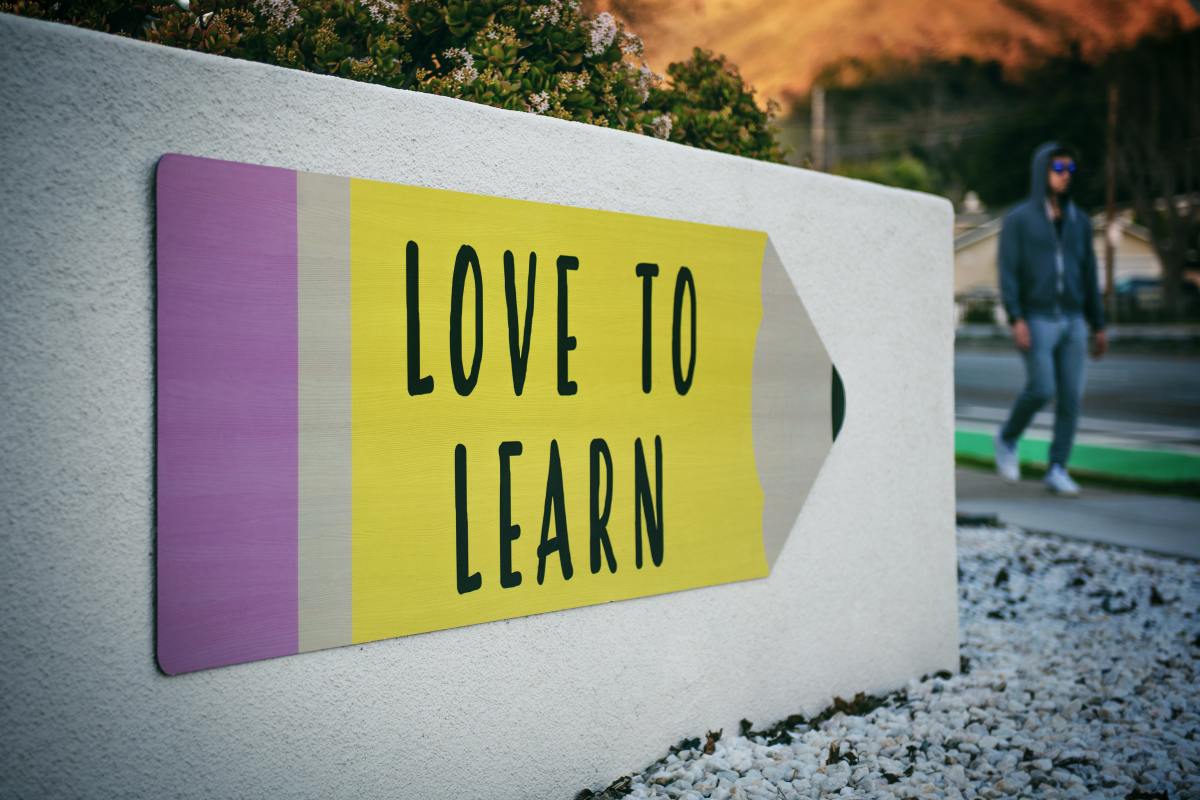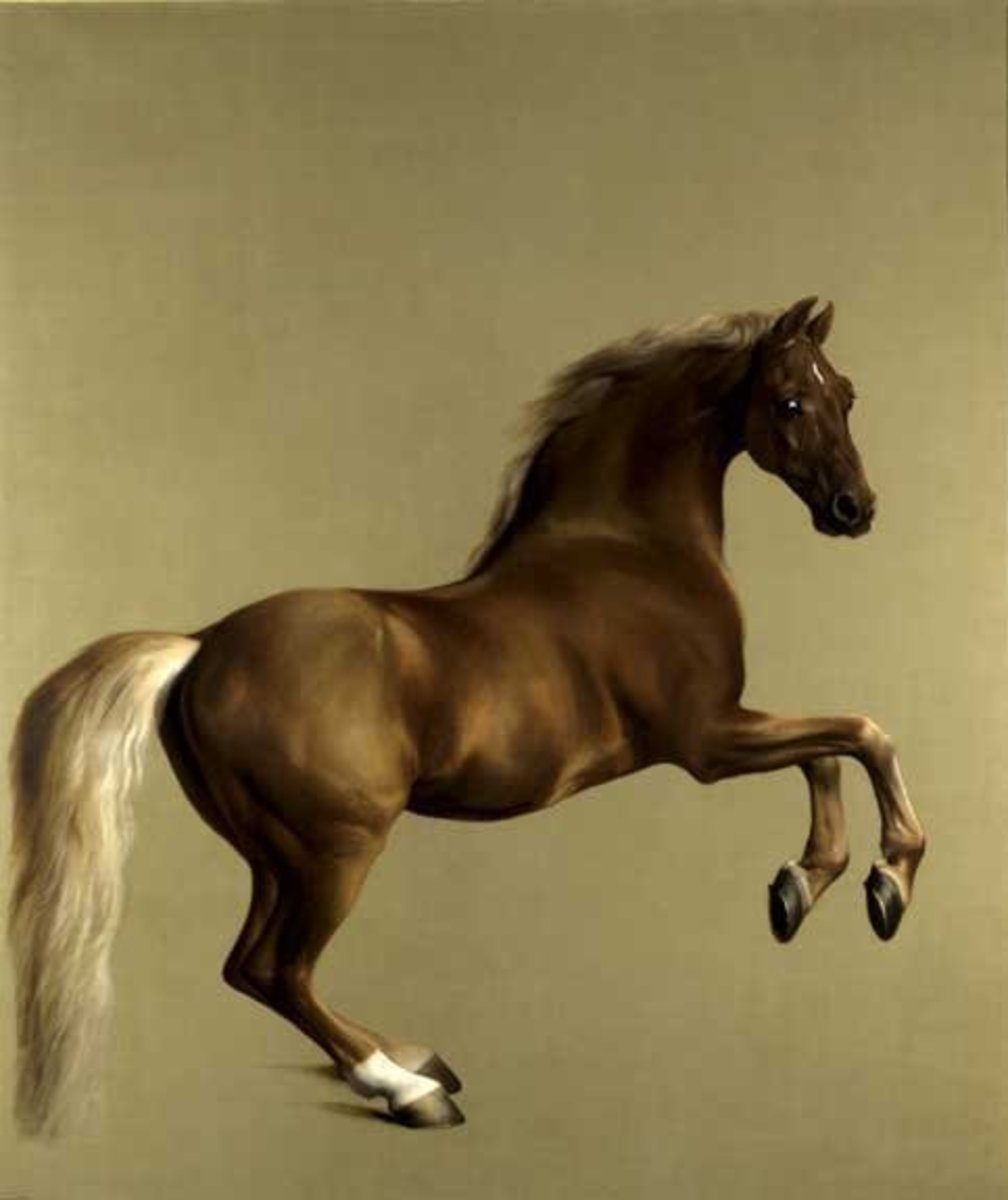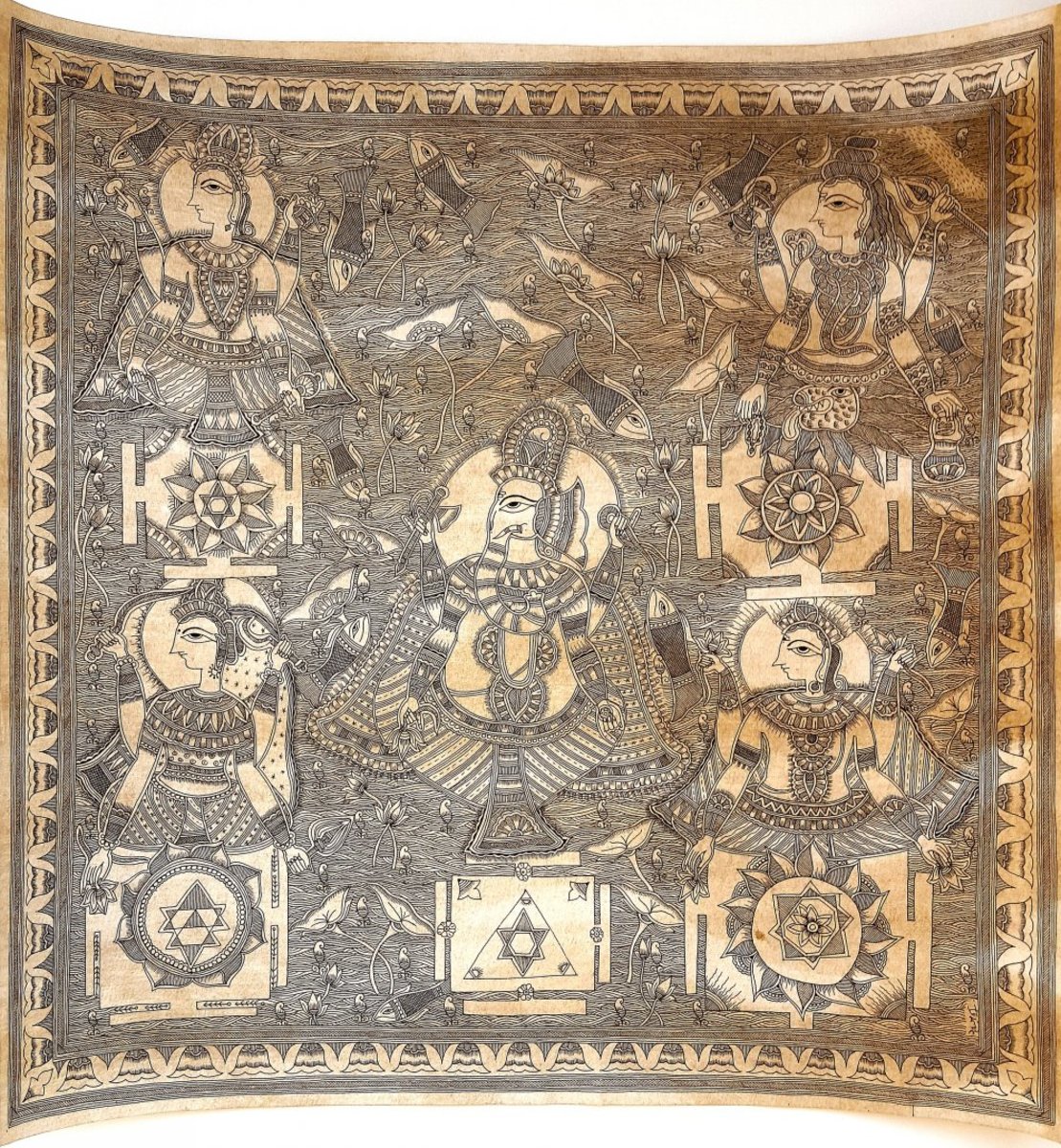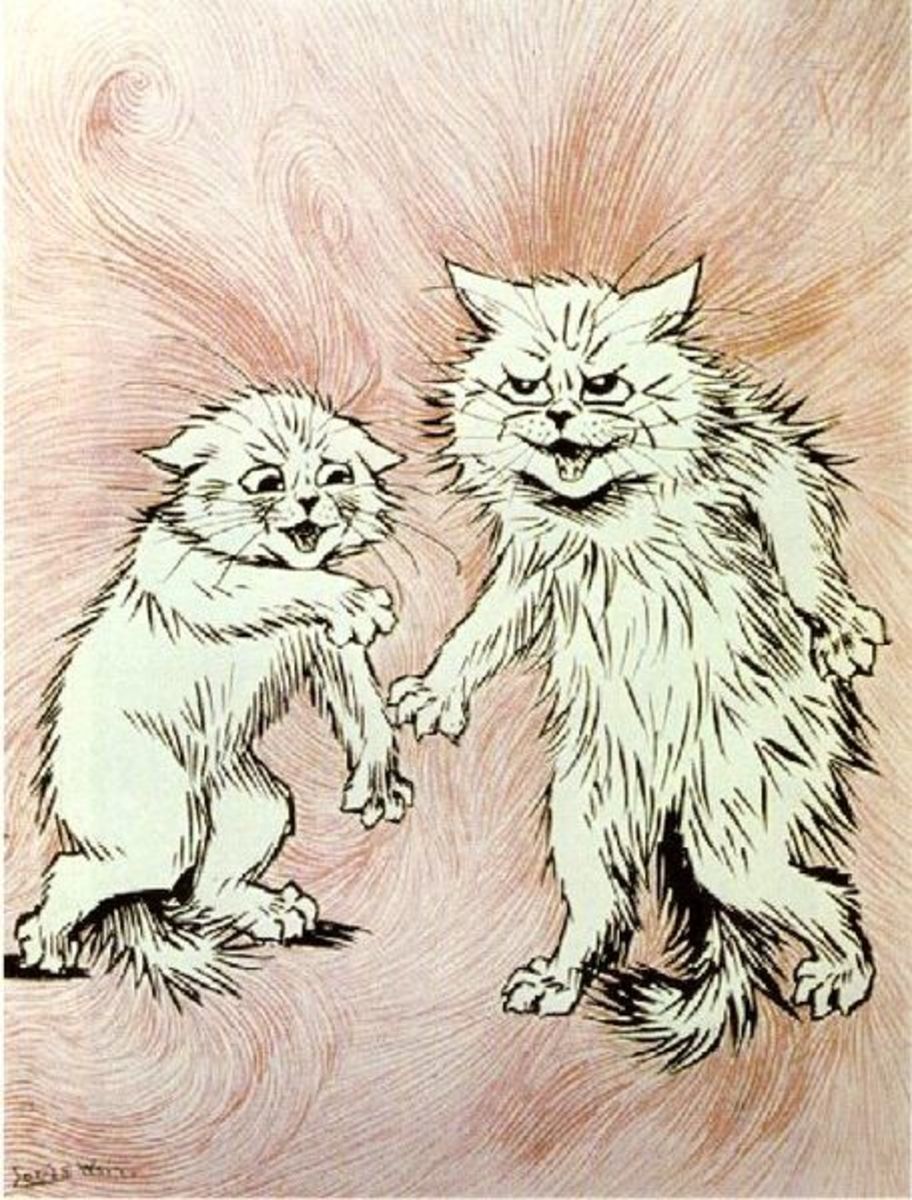Music is FUNdaMENTAL
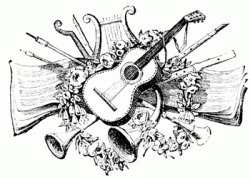
Multiple Benefits of Music Education
Music makes the world go around ... or so they say. Music may express a person's deepest emotions or tell a story. Music is definitely FUN, but have you ever thought about how much it may grow your MENTAL abilities, also?
Academics are pushed highly in education as they should be, but unfortunately it is at the cost of the arts. Music, art, dance, theatre, and literature are very much a part of most academic subjects. They are subtly wound into many aspects of cultures, history, language, sciences, and mathematics.
In the hopes of encouraging more study of the arts, I wanted to express some thoughts about why the arts are important to all curriucla, and share some ways they may be incorporated.
Since my background is in music, that will be my target area, but as all the arts are important, I hope they will be considered, also.
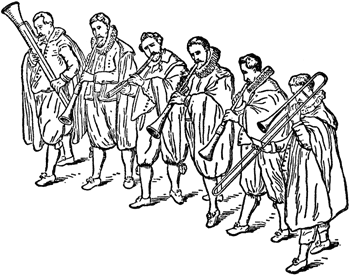
Teaching More Than Music
God has blessed me with quite an eclectic experience in teaching: general music in classroom situations, private music lessons, music theory and history, and instrumental and choral ensembles. When I first began teaching, I thought teaching music was just about teaching music. I've learned that it is so much more. For example:
~ teaching about a composer gives an opportunity to teach geography, the historic timeline, language, and culture;
~ teaching rhythms, intervals, and chords involves a great deal of mathematics, patterns, formulas, and science;
~ teaching lyrics to a song also involves language arts, poetry, and creative writing;
~ teaching movement or dance to the music enhances physical activity, coordination, and motor skills;
~ and teaching how to play instruments involves, timing, listening, fine motor skills, social interaction, group cooperation, expression, and creativity.
In the future, I will add new sections about ways to add music to curricula and the benefits that will arise from it. I know it will add to your student's overall education to include the arts. Enjoy yourself and be creative! :)
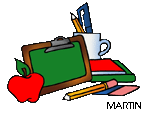
Music Improves Memory Skills
How many times have you had a tune stay in your mind for a long time? Can you remember the lyrics to a song that you haven't heard for years? What about all those commercial jingles you've heard over and over again? You know what I mean - if I said, "I'm lovin' it", you could probably hear the McDonald's tune in your mind. Or, what about, "Oh, I wish I were an Oscar Meyer weiner..."
Music aids in memorization. Words and information are simply easier to memorize when put to music! Below I have listed several educational songs that may be used in memorization of curriculum objectives. Try them out - it is amazing that after listening to a song a few times, the information starts to be ingrained into the mind and may be recalled easier than when just spoken.
I have to admit that many times I have put important information to song in order to remember it. It can be an original song, but common tunes are great, too. I still remember from high school trying to memorize a bit of Shakesphere's Julius Caesar ~ "Friends, Romans, Countrymen ~ lend me your ears ..." ~ the rhythm and little tune are still there in my mind!
Next time you want to memorize something, try putting it to "Twinkle, Twinkle Little Star" or "Old MacDonald". LOL - imagine going to the grocery store with your shopping list in mind - "Lettuce, carrots, cuccumbers, EIEIO. Milk, cheese, eggs, and butter, too, EIEIO!"
(My children don't exactly appreciate it when I walk through Acme humming, but I do remember what I need to get!)
Try some of these below for yourself, students, and children.
Music to Teach All Subjects!
- The Music Room ~ Songs to help teach curricular subjects
Language Arts: The Main Idea ~ The Comma Song ~ To, Too, Two Song ~ The Contraction Song ~ You Are My Adverb ~ There, Their, They're Song ~ Synonyms! Antonyms! Homonyms! ~ Possessive Song ~ Subjects! Predicates! ~ Conversation Plus ~ Nouns, Adjective - Teaching Songs and Chants
Developed by teachers, the Teacher's Workshop contains songs and chants for math, science, health, and language arts.
Music & Intelligence
There have been so many studies about this topic that I don't know where to begin, but I'll try to explain with an example I observed in my students. When my oldest two children were ages 3 and 1, I had been teaching several music and movement type classes for preschoolers and early elementary students. Of course, I just 'knew' how important music was to all, but I wanted some cold hard facts about how it could help to develop these young minds. So, I researched quite a bit from online sources, reference materials, books galore, and even music and medical journals. What did I find out? In a nutshell, most of the resources stated that studies had shown an increase in linguistics, mathematical thought processes, and logical skills in students who also studied music in some form.
The study of music, especially when learning to play an instrument, involves the brain at several levels and topics all at once. Think about it, if you go to a school band concert and observe these young people, what intelligence skills are they displaying just by playing in that band? Well, they have to be able to read all the information on the page, interpret, and then play it all at the same time! They have to be able to read what notes the little dots and lines on the page represent, interpret them to change whatever needs to be done to play them on their instrument, push keys or move body parts, follow the staff and read in order, listen to the other sounds (which may be completely different than theirs), watch their director to stay together with their fellow musicians, tap a foot to keep a steady beat, read and count the length of each note or rest, interpret other markings on the page such as how loud to play and so on, breath and blow properly for wind instruments, hold up a large instrument, and try to keep their place in the music without getting lost. Not to mention that while they are trying to concentrate on all this, their families and friends are staring at them as part of a large crowd! If this does not use and broaden student intelligence, then I don't know what will! Quite a difficult task to accomplish!
How Can Music Education Help? - Find out more about the arts & education.
- Brain Functions & Music
Read about "How Does Music Affect The Brain and Learning?" in this informative article. - The Benefits of Music Instruction for our Children
Read here to find out about twelve benefits of music education. - Benefits of Music Education for Your Child
A short article listing some of the researched benefits. - Music Education Helps Increase Academic Test Scores
An article from the The Spectrum by Rhonda Tommer supporting the idea that the arts help to develop academic skills.
A Music Poll for You - What do you think?
Do you believe the research that the arts enhance learning and the brain?

Music & Language Arts
Language Arts - So many language arts skills may be practiced while studying music!
Reading and writing, of course, are fundamental to all other learning in any subject. If you have read any of my lesson plans and unit studies, you know that I highly promote "hands - on learning". While I believe the best way to learn about a subject is to be surrounded by it (touch it, feel it, see it, hear it - get all the senses involved), at some point knowing how to research a topic, reading about it from a variety of sources, and being able to comprehend the materials is vital in obtaining a more complete understanding of a concept. Therefore, to be able to expand knowledge deeper than our personal experiences, reading is essential.
How may music help in reading comprehension?
~ recognizing sounds and phonics;
~ hearing rhythmic patterns of sound;
~ and more!
Activities students may do to improve reading and music skills:
~ read about the instruments, composers, history;
~ use library and internet research skills to obtain more information;
~ write a descriptive paragraph about an instrument.
~ create a poem about your favorite instrument ...
Consider the mental skills necessary to read both music and stories.
Compare reading music with reading words.
~ Music is read on the page from top to bottom, left to right, just like reading a book.
~ Musicians(readers) must be able to interpret musical symbols (letters) to notes sounds (phonics sounds).
~ Musicians (readers) read groups of notes (letters) as scales and chords (words).
~ Composers (writers) write musical phrases (sentences), sections (paragraphs), and songs (stories).
- Jazzles ~ Songs & Letters
Use these alphabet rhymes / songs for teaching young children letters and phonic basic sounds. It is so much more fun and memorable learning them with music! - Write a Rap Song
Help students create a rhyming poem to put to music. - Music Boosts Capacity for Language
Enjoy this wonderful blog post about connections between language and music abilities!

Music & Mathematics
I was recently observing my youngest child make numerous music to math connections in his natural curiosity and learning. Being in a musical family, he has been picking up musical skills without much prompting from me. While his older sister was helping him play a song on the piano, I sat quietly watching while she was showing him the intervals or distance / measurement between notes on the staff . She had him comparing the lines and spaces (geometry) on the staff and counting the spacial relationships between written notes on the page. She then guided him to use his senses from visual perception of the notes on the staff to physical placement of the hands on the piano and auditory discrimination of the pitches he heard. Seems like an abundance of mathmatical skills to me!
After he played through the song trying to master the correct notes, my daughter reminded him of the note lengths and timing by having him name the types of notes and determine their values in 4/4 time signature. The names alone were helping his concept of fractions ~ whole, half, quarter, eighth. Addition came into play next to create the equivalent measures (simple equations - predecessor to algebraic knowledge?). Finally, I listened as she assisted him in playing with a steady beat (more measurement, values, and equalities). Interesting that so many musical terms also happen to be mathmatical terms, isn't it?
Later he went over to the drum set in the music room where I heard him on his own create patterns and sequences of tone color sounds and rhythmic values. I heard him loudly counting as he played a "bass, snare, snare, cymbal; bass, snare, snare, cymbal" repetitive ostinato. I heard him create other patterns of sounds and instruments, but found it interesting that he consistently kept a four beat per measure time signature naturally.
Who knows? Perhaps someday when he is older, we will discuss the frequency and durations of musical sound vibrations and the acoustic-mathematical relationships in music!
Improve Math Skills with Music
There is, without a doubt in my mind, a correlation between basic math skills of addition and fractions (among many other concepts) through algebraic equations and music!
For example, ask a student to create a rhythm to fit within a 4/4 time signature. There are a ton of note combinations they could come up with involving whole numbers and fractions, but they have to be able to add them to 4. Now, that may seem simple if there are four quarter notes each with one beat ~ 1+1+1+1=4, but have them try it with eighth, sixteenth, thirty-second, or dotted valued notes and rests.
Eighth + sixteenth + sixteenth = 1/2 + 1/4 + 1/4 = 1 beat
Dotted eighth + sixteenth = 3/4 + 1/4 = 1 beat
Here is a rhythm pattern a student was recently working on. (I am not making this up!) This is one measure ~ how many beats total in that measure? What is the meter? (Sorry I don't have the music font that will work on this page to write it in musical notation.) To figure it out, the student must be able to:
1 - distinguish each notation from one another,
2 - know each notation's correct value on its own,
3 - and add a string of fractions together to get the total.
4 - The student then needs to count each of the values in relationship to each other
5 - while keeping a steady beat.
6 - Of course, the musician is trying to read the letter name of the note from the staff
7 - and push the appropriate keys for that note on their instrument at the same time
8 - (keeping in mind the key signature, too) ~
9 - not to mention listening to other musicians in a group play different rhythm patterns
10 - and watching the conductor simultaneously.
Have a headache yet? If not, try this out! How many beats total is in the example?
(You can do it ~ I even gave you the first two steps!)
Dotted eighth + thirty-second + thirty-second + sixteenth triplet + sixteenth triplet + sixteenth triplet + sixteenth + sixteenth + thirty-second + thirty-second + thirty-second + thirty-second + eighth + double dotted eighth + thirty-second + sixteenth + sixteenth + eighth =
3/4 + 1/8 + 1/8 + 1/6 + 1/6 + 1/6 + 1/4 + 1/4 + 1/8 + 1/8 + 1/8 + 1/8 + 1/2 + 7/8 + 1/8 + 1/4 + 1/4 + 1/2 = _____
Simply by listening to my music students rhythmic skills, I can usually determine how they do in math. Out of curiosity, I have ask them frequently about what they think of math or how they do in the subject. I can almost always predict what they are going to say ~ those who like math and do well in it are usually the ones who have strong rhythmic skills, and those who do not like math or have lower grades in it struggle with steady beats and counting rhythmic values. Coincidence? I do not think so! Whatever part of the brain that processes number skills and computations must be related to music in some way. Therefore, it seems to me, in my humble opinion, that studying and strengthening rhythmic skills will also benefit mathmatical skills.
- Classroom Compass
Teaching Math with Music ~ Wonderful articles and resources! The Rhythm of Mathematics ~ Making Mathematics Move ~ Standards ~ Resources - How We Use Math for Music
Read a few samples of how math is used in music.
The Relationship Between Music & Science
My high school daughter was recently studying physics and acoustics from her science textbook. After she ask me one simple question from her text, I got very excited at the science of sound! As she rolled her eyes at me, I know she must have been thinking, "Oh no, why did I ask a question about sound waves to a music teacher?"
I'll write more about it later, but I wanted to mention now all the musical related concepts from this science textbook! In the chapter she was on, it discussed sound production, sound waves, frequency, amplitude, hertz, vibrations, reverberation, pitch, duration, and more! Thrilling stuff to me!!
More to come on this in the future ... she is currently working on a science project with this topic. (Her choice, by the way, not prompted by me.)
Is Music Education Important?
Should the arts be incorporated into everyday education?
Music & Art
These two forms of creative expression go hand in hand! Many times artists have been inspired by music they hear just as musicians have been inspired by works of art. A wonderful example is "Pictures at an Exhibition"! Artist Viktor Hartmann became friends with composer Modest Mussorgsky around 1870. When Hartmann suddenly passed away, all of the Russian's artwork was put together in a huge exhibition. Mussorgsky enjoyed the art pieces and decided to create music to express what he saw and felt about them. They turned out being a fabulous collection of classics!
- Musical Art
Explore with watercolor paints, music, and several artists!
Please share how the study of music and art has affected you.
What impact has music and art given you?
